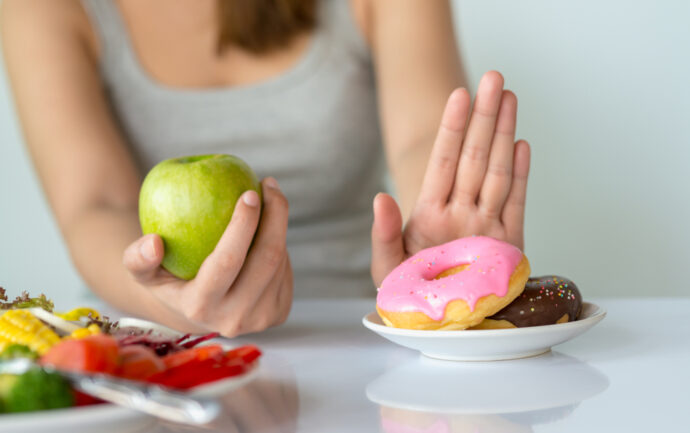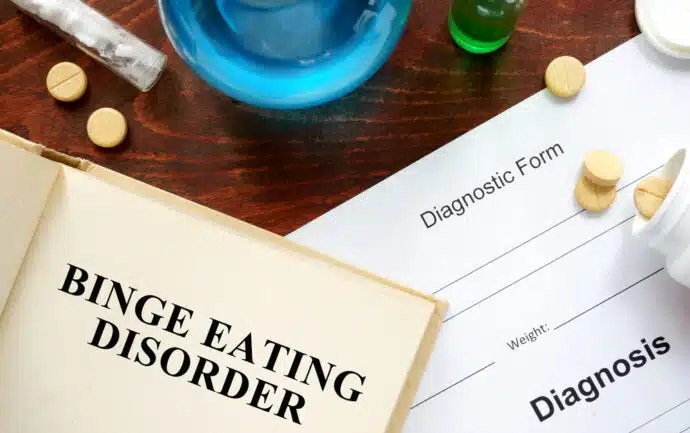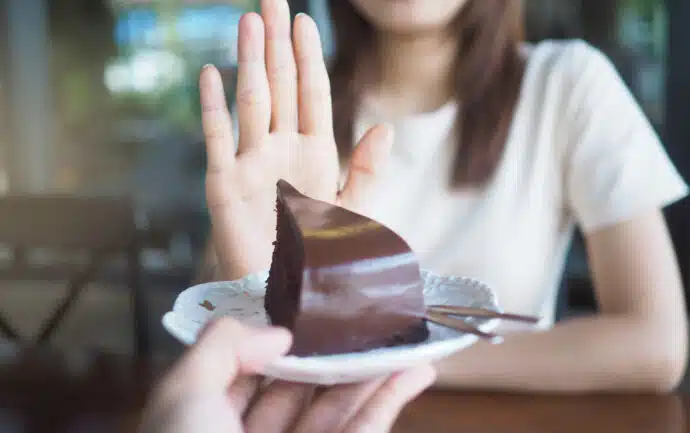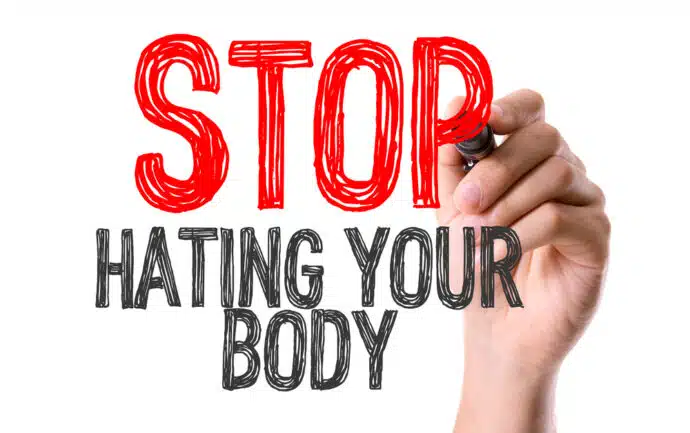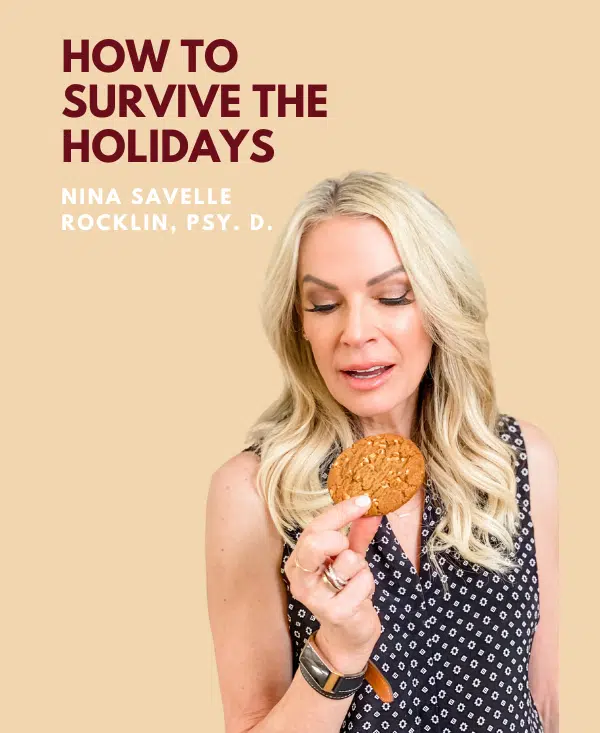
Table of Contents
- Can Emotions Cause Emotional Eating Behavior?
- Do Food Pictures Affect Emotional Eating?
- Is Overeating a Facet of Emotional Eating?
- The Hidden Reasons Behind Emotional Eating
- Breaking Free From Emotional Eating
- The Way Out: Approaching Eating Habits from an Emotional Perspective
- Frequently Asked Questions on the impact of Emotions on Eating Habits
Understanding the impact of emotions on eating habits is an important step to healing from emotional and binge eating. Overcoming emotional eating isn't about focusing on the food on your plate. Instead, making peace with food comes from identifying the hidden emotional triggers that lead us to use food as a negative coping tool.
Picture this as a friendly conversation about the psychological factors influencing our eating habits and how emotional understanding can help you shift your eating habits. It’s not what you’re eating that’s the true problem, but what’s eating “at” you.
Can Emotions Cause Emotional Eating Behavior?
Yes, indeed! Each of us has probably experienced times when stress, sadness, or even a bout of sheer joy, have led us to reach for a scoop of ice cream or a slice of pizza. Unlike hunger which is a physiological response, emotional eating is driven by emotions and feelings.
Emotional eating simply means eating to change the way we emotionally feel. Binge eating is a type of emotional eating taken to an extreme. It involves eating large quantities of food, often quickly, and leads to shame, guilt, and remorse.
The impact of emotions on eating habits can be quite significant, particularly if you're prone to using food as a coping mechanism or to manage difficult feelings.
Do Food Pictures Affect Emotional Eating?
Interestingly, yes! Food pictures and advertisements can indeed play a role in emotional eating. We've all faced those moments where a picture of a cookie or a pizza on social media has tempted us into reaching for a similar snack.
But why is that?
Images of food, especially those that are high in sugar or fat, often tap into our emotional responses.
When we're already feeling stressed, sad, or bored, the sight of these comforting foods can be incredibly appealing. Over time, this can become a pattern – where certain foods are associated with certain feelings.
Is Overeating a Facet of Emotional Eating?
No, it’s not. Overeating differs from binge eating or emotional eating. Overindulgence can happen for many reasons—often unrelated to our emotions. Take, for instance, the tradition of eating until we're stuffed on Thanksgiving.
Or, if we go too long without eating and become ravenous, it's easy to overeat once we finally have food in front of us. Overeating is simply eating too much but it’s not tied to emotional eating.
Emotional eating may or may not involve eating to excess. Having a bowl of ice cream for comfort is not overeating. Binge eating, which is a form of emotional eating, does involve large quantities of food but it’s not seen as “overeating” but rather as binge eating.
Whereas overeating is benign, binge eating comes with a loss of control, and it's often followed by feelings of regret, self-reproach, and embarrassment. It leaves you asking, “What's wrong with me?” It's not just the eating you regret, but there's also a deep-seated distress about who you are.
Understanding the impact of emotions on our eating habits is a crucial step towards developing healthier relationships with food and our feelings. Remember, it's okay to seek help and support if emotional eating is causing distress in your life.
The Hidden Reasons Behind Emotional Eating
Many times, we might reach for a chocolate bar or indulge in a bag of potato chips after a stressful day without fully understanding why. Interestingly, this behavior isn't random – it's deeply connected to our emotions.
Binge eating is an extreme form of emotional eating that serves as a negative coping strategy, an escape of sorts, to numb or suppress feelings that may cause discomfort.
This doesn’t mean eating a bowl of pasta after a tough day at work or enjoying an ice cream for comfort. These are common behaviors and part of our human experience. When we talk about emotional eating here, we are referring to scenarios where such practices turn chronic, disrupting normal life, and causing significant distress.
Sadly, many of us are often unaware that we are in the clutch of such a cycle. But why do we resort to food? The simple answer is, it ‘works.' At least momentarily. But why does it work?
The Connection Between Food and Love in Emotional Eating
We start linking food with feeling loved and secure during our earliest days in infancy. Being held and fed by our parents is our first taste of comfort and connection. On some level, we all connect food with feelings, especially the warm and fuzzy kind.
Consider how we talk about love and food using the same kind of words. A good relationship is ‘satisfying' or someone is ‘starving' for love attention. When we want ‘comfort food’ what we really want is someone to comfort us.
Eating is a way of trying to get back to that safe, loved feeling we had when we were little. It's not really about the food; it's about trying to comfort ourselves and recapture that secure feeling.
Yet when you're feeling lonely, you can't always find someone to give you a hug. And even if you're not alone, people around you might let you down. That's when food sometimes steps in because, unlike people, it's always there, and it never disappoints.
Breaking Free From Emotional Eating
Understanding that emotional eating is not about food but about feelings and learning to distinguish between physical hunger and emotional hunger can be the first steps towards breaking free from emotional eating.
Emotional hunger is sudden, and overwhelming, and will make you crave specific comfort foods. You may feel like you need to eat as soon as possible to suppress the emotion and may even eat more than you usually would, often mindlessly, without actually enjoying it.
On the other hand, physical hunger is gradual. There is no urgency, and you're open to a variety of food options, eating consciously, and stopping when full.
Furthermore, identifying the triggers, situations, and emotions that make you reach out for food, and finding healthy coping strategies such as relaxation techniques, exercise, or seeking support from loved ones can greatly help in handling emotional eating.
This is not an overnight journey. It may require patience, resilience, and a lot of self-love. But remember, you're not alone. We are in this together!
Strategies for dealing with Emotional Eating
Self-awareness is key when it comes to breaking free from emotional eating. It requires a deep understanding of yourself and your triggers. Here are some practical strategies to help you manage and overcome emotional eating:
- Identifying emotional triggers: Look for patterns in your eating habits. Do you tend to turn to food when you're stressed, lonely, bored, or sad? Keeping a food and mood diary might help you identify your triggers.
- Find healthier ways to feed your feelings: If you don't know how to deal with your feelings in a way that does not involve food, it might be challenging to break free from emotional eating. Try to find alternative activities that can help you cope with negative feelings. This could include talking to a friend, and learning to identify, express, and respond to your emotions in a healthy way.
- Reach out for support: You don't have to do it alone. Reach out to trusted friends or family members or consider seeking support from a mental health professional or a support group. Sometimes, just talking about what you're going through with someone who understands can make a world of difference.
- Don't skip meals: It might be tempting to skip meals, especially if you're concerned about gaining weight, but doing so can lead to overeating later on. Aim to eat regular, healthy meals throughout the day.
Remember: Breaking free from emotional eating is not about exerting more willpower or going on a strict diet. It's about learning to listen to your body, understanding your emotions, and finding healthier ways to cope with stress and other negative feelings.
In the end, it all comes down to self-love and acceptance. You are so much more than your eating habits, and your worth is not defined by the number on the scale.
This journey of understanding the impact of emotions on eating habits is a step towards self-awareness and positive change. Many times, people overlook the relationship between emotion and food, not understanding that their eating behaviors are often reflections of deeper emotional issues.
Indeed, before getting into the principles of emotion regulation and how it can support healthier eating patterns, let's explore a rarely mentioned but significantly impactful aspect of emotional eating: over-indulgence after a period of restrictive dieting.
The Way Out: Approaching Eating Habits from an Emotional Perspective
Breaking the cycle necessitates a change in your approach. Rather than focusing solely on what you eat, the key lies in understanding your emotions and learning healthier ways to cope when they become overwhelming.
The first step often involves acknowledging the emotional undertones of your eating habits. This could mean identifying feelings of deprivation or guilt related to food, recognizing emotions that trigger binge eating, or understanding why certain foods provide comfort during stress.
Beyond acknowledgment, develop new strategies for managing emotions. Remember, the aim is not to eliminate all emotional eating but to develop a healthier relationship with food where it no longer serves as your primary way of dealing with emotions.
Frequently Asked Questions on the impact of Emotions on Eating Habits
1. What triggers emotional eating?
There can be many triggers for emotional eating. It could range from stress, anxiety, depression, or even from feelings of happiness and celebration. The key is pinpointing what emotions drive your overeating habits and addressing them effectively.
2. How can someone break the cycle of emotional eating?
Breaking the cycle of emotional eating often involves learning new coping mechanisms, understanding the emotional triggers, and forming a healthier relationship with food. Therapy can also be beneficial to unearth deep-seated issues facilitating emotional eating.
3. What other benefits can one derive from coloring books aside from managing binge eating?
Yes, dieting can lead to emotional eating. Restrictive eating can make you deprived and can cause stress, which may result in overeating or binge eating.
4. Is there a link between dieting and emotional eating?
Yes, dieting can lead to emotional eating. Restrictive eating can make you deprived and can cause stress, which may result in overeating or binge eating.
Is there a link between dieting and emotional eating?
Can looking at food pictures trigger emotional eating?
Dogs are known for their loyalty and protective instincts. Having a dog at home can create a sense of security, knowing that they can alert you to potential dangers or intruders. The presence of a dog can also provide emotional comfort, especially for individuals living alone.
Get 'The Binge Cure: 7 Steps to Outsmart Emotional Eating'
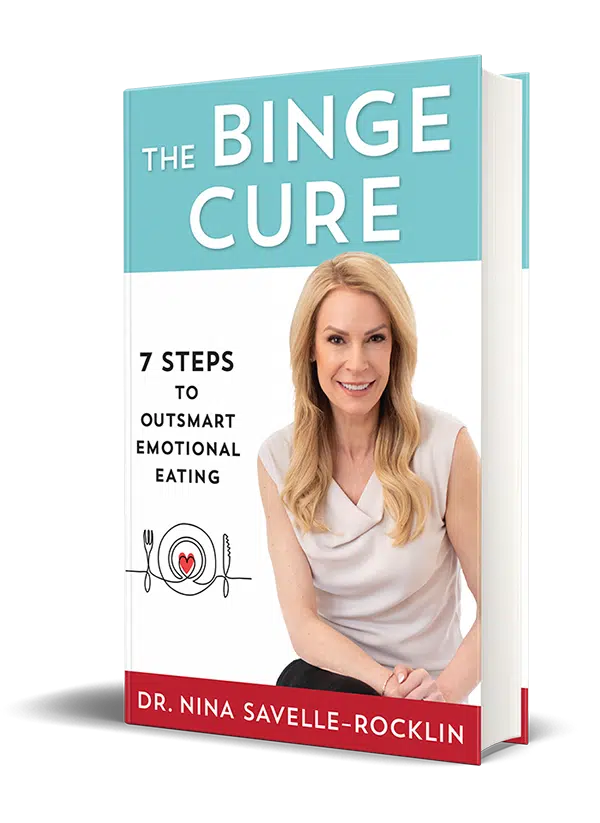
The Author

Dr. Nina Savelle-Rocklin is a renowned author and podcast host and one of the nation’s leading psychoanalysts known for the psychology of eating. Her signature message of, “It’s not what you’re eating, it’s what’s eating ‘at’ you” has resonated with hundreds of thousands of listeners from around the globe in 40 countries. As founder of The Binge Cure Method, she guides emotional eaters to create lasting food freedom so they can take back control of their lives and feel good in their bodies.
Related Blogs



